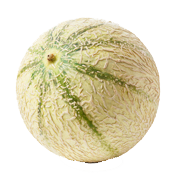THE ORIGINS OF MELON
The origin of melons could be India or Africa. The most famous traces are in India. It can be thought that it followed the same path to the West as the other cucumbers at the beginning of the Christian era. Currently cultivated in many countries, new varieties are nowadays being created, especially by Israelis and Japanese.
THE VARIETIES OF MELONS
The melon (Cucumis melo) requires heat and lots of sunshine. The number of melon varieties is considerable, about 200. In the same way as squashes (same family) there are summer and winter melons.
Some categories are distinguished, such as the smooth or written Charentais melon. These melons can only claim to be Charentais if their skin turns yellow when they are ripe. Orangey, juicy flesh are the main characteristics. The varieties are called Figaro, Cézanne, Diabolo and others…
The embroidered Charentais has less marked edges and is represented by the Sierra and Sivan. The skin is like embroidered with a fine pattern while its thickness is more important.
A melon upside down, Galia has an orange-brown and embroidered bark and its flesh is light green. In this type of melon there are varieties such as Radical, Vicar, Total and Hobby. Canary yellow melon is bright yellow and its sweet white-orange flesh is not very fragrant.
Piel de Sapo (toad skin in Spanish) or Olive Green, marbled green with light yellow has a white flesh without scent.
Other varieties exist such as Honeydew, Casaba, Ogen, Santa Claus…
At the end of the year it is possible to find melons from the West Indies if the hurricanes have avoided these islands.
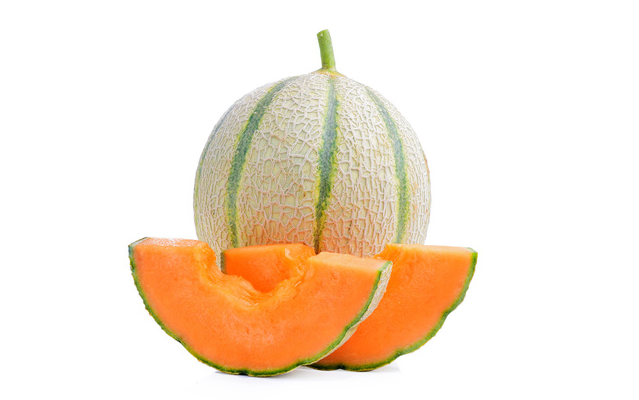
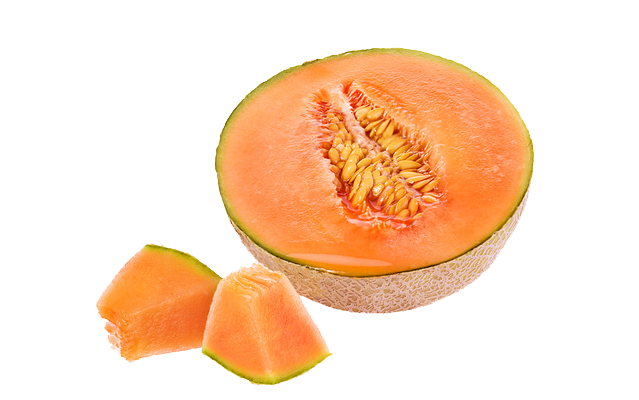
HOW TO CHOOSE MELON
Don’t be fooled by its colour, a green melon can be as sweet as a yellow one. A good melon, heavy and fragrant, is sometimes detected by cracks near the stalk.
Count a 150g slice per person.
HOW TO STORE AND COOK
MELON
Melons don’t like cold: avoid the refrigerator.
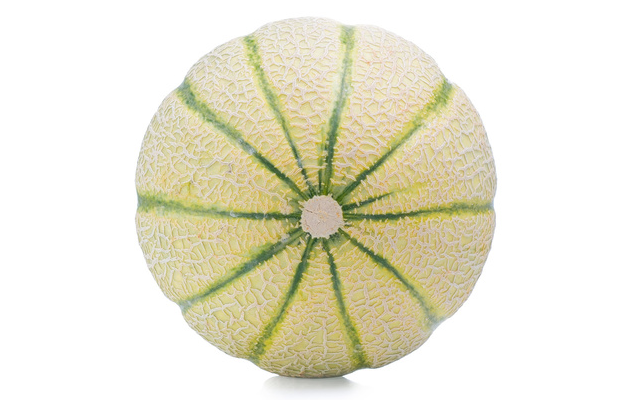
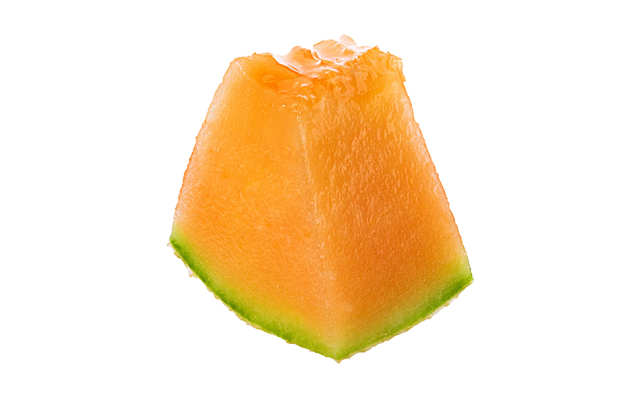
MELON’S HEALTH PROPERTIES
The melon is an excellent supplier of provitamin A, which as an antioxidant neutralizes free radicals. Moreover, in summer, it provides a good quantity of water because it contains a lot of water (88g per 100g of melon).


